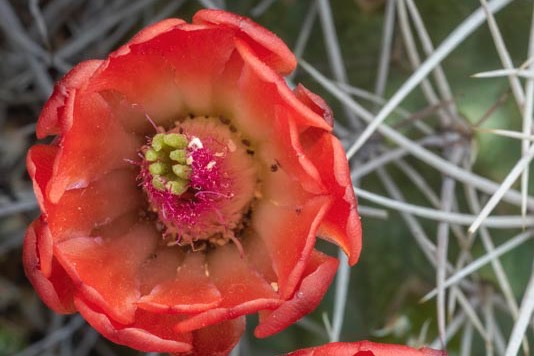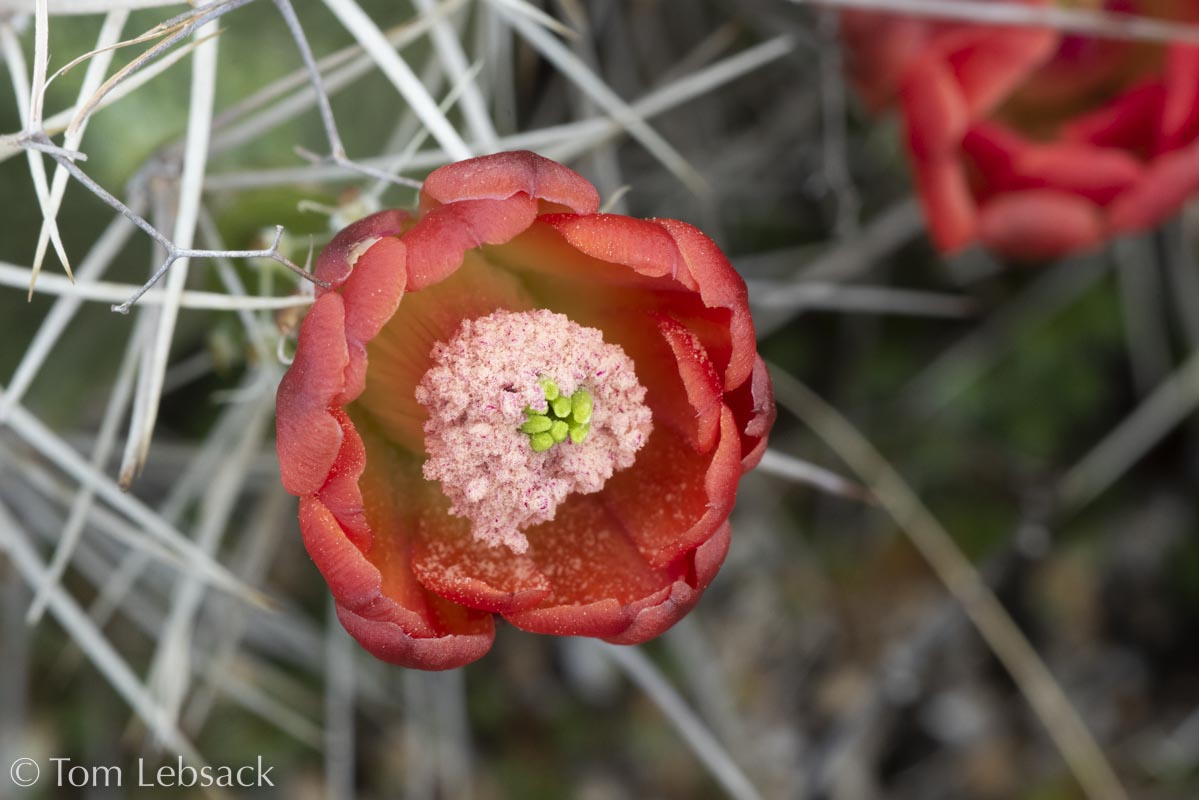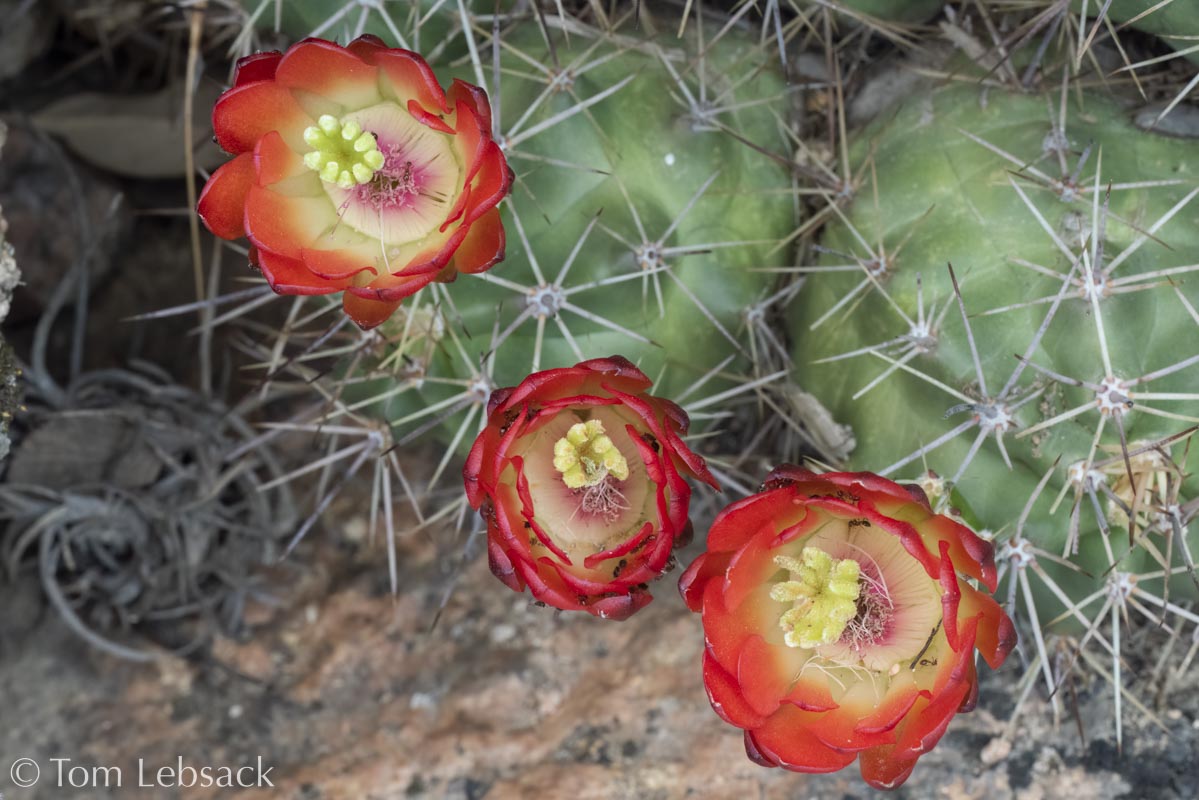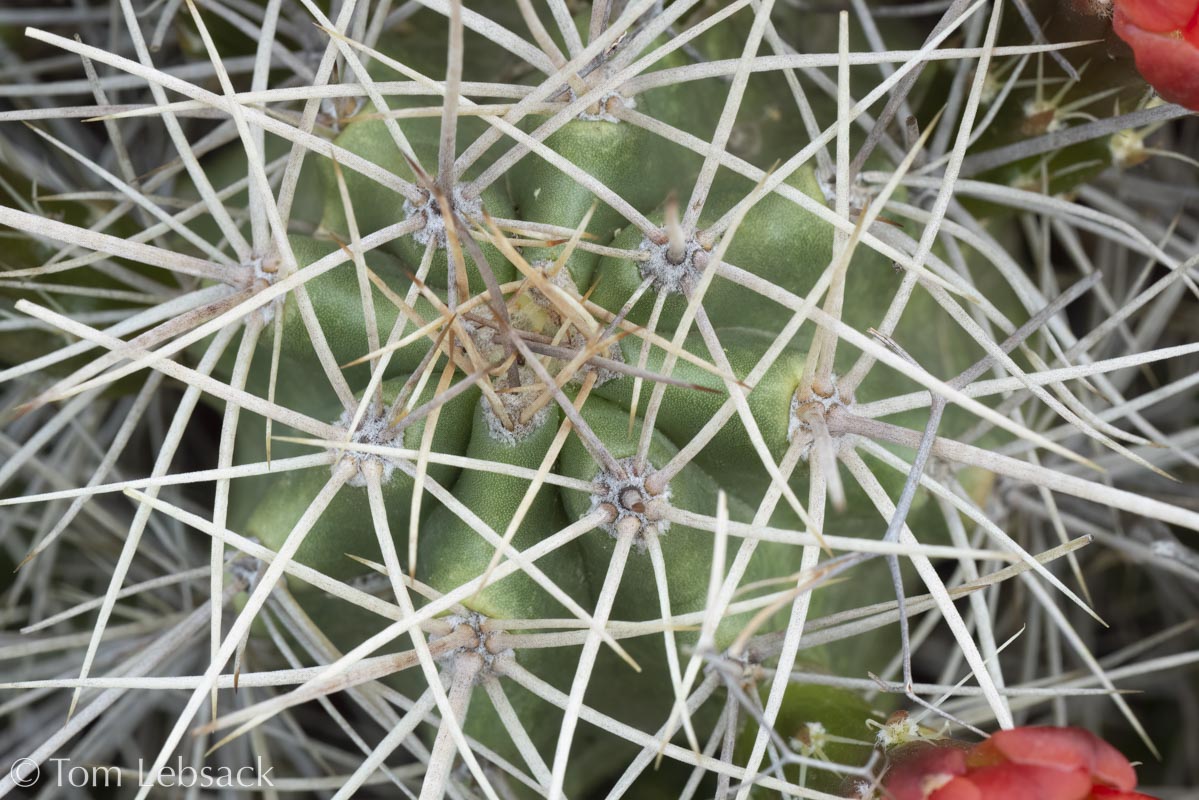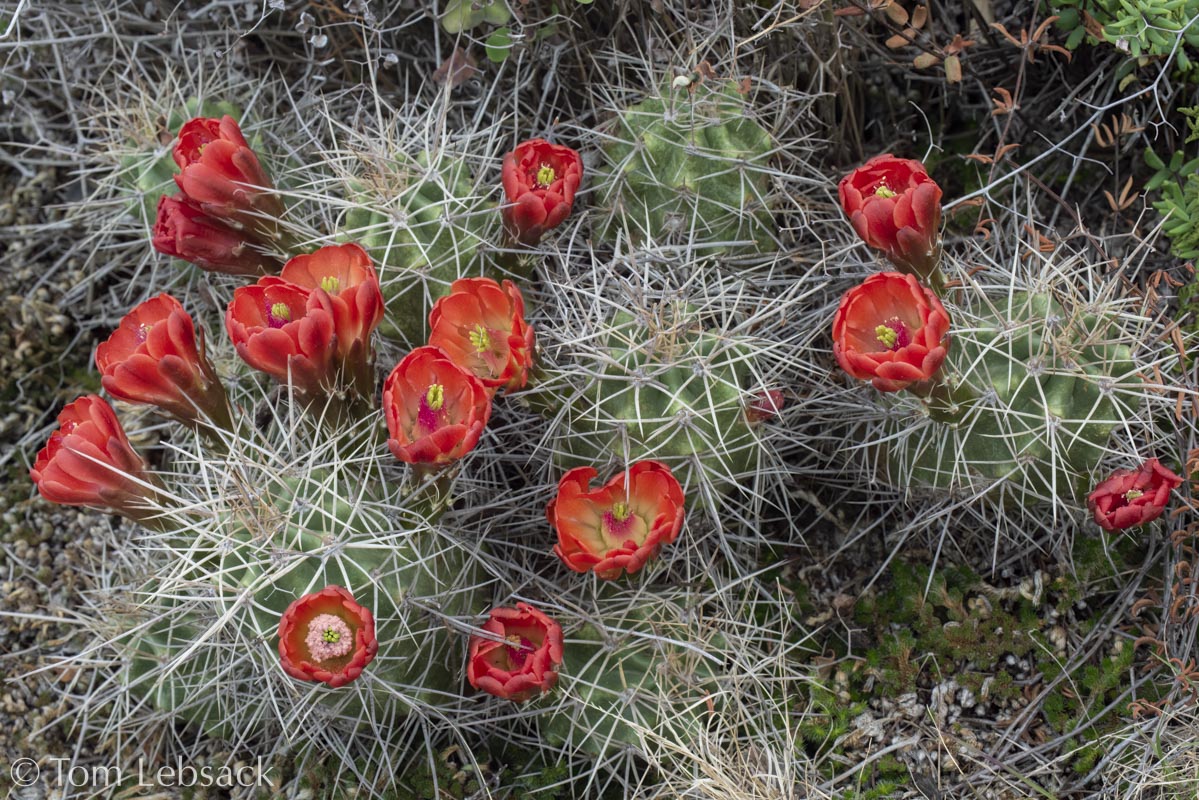Texas Wildbuds
Echinocereus coccineus ssp. roemeri
(Claret Cup Cactus)
| Scientific Name | Echinocereus coccineus ssp. roemeri | USDA PLANTS Symbol | N/A |
| Common Name | Claret Cup Cactus, Scarlet Hedgehog Cactus | ITIS Taxonomic Serial No. | N/A |
| Family | Cactaceae (Cactus) | SEINet Reference |
N/A |
| Description | Habitat: Dry environments; granitic soils and rocks, primarily in Llano, Gillespie and San Saba counties. Plant: Mounds up to 40 inches across and 4 to 16 inches tall of usually up to 20 stems, but very old plants can have many more. Pads & Spines: Stems with ~8 ribs; areoles close together compared to E. c. paucispinus; 0, 1 or 2 central spines per areole, 1/2-inch to 2 inches long, and 8 or more radial spines 5/8-inch ~2 inches long. Inflorescence: Funnel to cup-shaped flowers with rounded, rather stiff, bright crimson tepals with cream-colored bases, 1-1/4 to 2 inches across; male flowers with cream-colored to reddish filaments and pinkish, pollen-filled anthers; female flowers with reduced filaments and empty anther sacs below ~8 green stigma lobes. Bloom Period: March and April. Fruit: On female plants cross-pollinated by male plants; dull to bright red, obovoid to cylindroid, 1/2 to 1 inch long. References: "Cacti of Texas" by Powell, Weedin and Powell, iNaturalist, Flora of North America and observation. |
BONAP Distribution Map
| Texas Status: Native |
Banner photo of Castilleja indivisa and Lupinus ssp. taken along FM 1323 north of Johnson City, Blanco County
© Tom Lebsack 2025
Every attempt is made to provide accurate, up-to-date, and relevant information, but the completeness or accuracy of any information presented on this website cannot be guaranteed. I use authoritative references to insure high standards of accuracy and review and update the information frequently.
